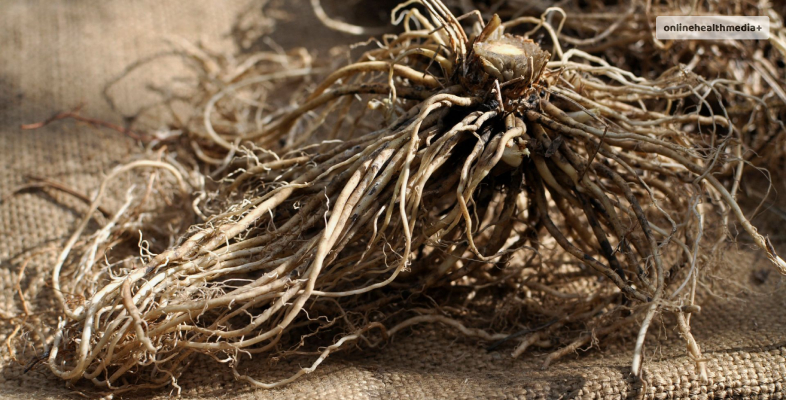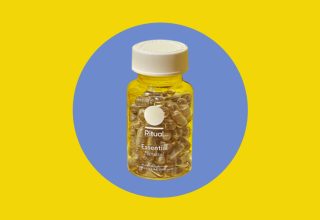Supplements For OCD: Are They Safe For Us? Know More!
Obsessive Compulsive Disorder, or OCD, is a mental and behavioral health issue that can lead to intrusive thoughts in the individual. This can lead to compulsion for the individual to do certain things. The article will investigate the supplements for OCD that can help control these symptoms.
There are at least three million individuals in the United States alone who experience OCD. Nearly 60 to 80% of people with OCD also experience a major depressive episode that can leave them feeling worse.
A common misconception about OCD is that people with OCD always have a compulsion to keep things organized and clean. People also think that OCD is only about cleanliness and keeping things super super neat.
The article will tackle other such misconceptions. Read on till the end to know all the natural supplements that can help with OCD.
Causes of OCD

Before we look at the supplements for OCD, we must consider the causes of this issue. Mental health conditions show up due to underlying issues that trigger changes in the body, which can lead to behavioral changes. There are also other changes that the person experiences.
The following are the common causes and risk factors of OCD:
- A person with OCD usually shows signs of cognitive factors that lead to OCD. They harbor dysfunctional thought patterns and beliefs. Moreover, a heightened sense of responsibility is also visible in these people.
- Experiencing childhood trauma is another factor that can put a person at risk of developing OCD. It can be seen as a way to control their surroundings due to the lack of control they had when they were undergoing that trauma.
- There are also connections between people with reserved behavior feeling negative emotions and exhibiting signs of depression and anxiety.
- Studies have shown that people with OCD have structural changes in their subcortical region and cortex. This leads to their inability to control their emotional responses and behavior.
- If you have a relative (first-degree) who has OCD, you will have an increased chance of developing the disorder.
Does Gut Health Play A Role?

Did you know a microbiota-gut-brain axis affects the person, specifically in psychiatric disorders? There is a bidirectional microbiota-gut-brain axis in the mind which can be implicated in obsessive-compulsive disorder.
Significant studies suggest lower bacterial alpha diversity is present in the gut microbiome of people with OCD. This was found compared to those with a healthy gut microbiome who showed healthy alpha-diversity.
Specific changes occur in OCD patients, such as an increase in the Rikenellaceae genus Alistipes. There is also a reduction in the abundance of species such as Prevotellaceae, Oscillospiraceae genus Oscillospira, Odoribacteraceae genus Odoribacter, Lachnospiraceae genera: Agathobacter, Coprococcus, and Anaerostipes.
Studies also suggest that probiotics containing Lactobacillus rhamnosus GG and Lactobacillus casei can cause significant attenuation in OCD symptoms.
There are mainly two mechanisms that worsen the symptoms of OCD for an individual. You can experience chronic stress that affects the gut composition, which can hamper your mental health.
Moreover, your gut microbiome can suffer if you use antibiotics for a condition. It can disrupt your gut microbiota, leading to the development of OCD symptoms.
The imbalance in the gut microbiome can also cause inflammation in OCD. There is a reduction in the gut microbiome microbiome diversity found in individuals with OCD. Reduction in the gut microbiome’s diversity can cause an increase in the C-reactive protein levels. CRP is a classic marker of inflammation that helps physicians know what is going wrong with the patient.
A condition known as leaky gut is a culprit of inflammation in patients with OCD. The exposure to stressful events combined with the excess use of antibiotics can alter the gut microbiota more severely. Moreover, it can cause OCD symptoms in the patient.
Why Consider Natural Remedies: How Does ERP Help?

The conventional treatment options for OCD include therapy and medications that help bring the symptoms under control. The problem arises when the medications start having side effects.
There are also chances when the drug therapy does not work well for the individual. They can develop a delayed response to it. Moreover, there have been cases of people experiencing bad side effects.
Not everyone can experience complete remission of the symptoms with medications. Nearly 50% of the patients are at a higher risk of side effects and relapse.
One of the most debilitating mental health conditions, OCD, can make it very difficult for a person. The natural treatment options usually include therapy and natural supplementation to balance the deficiencies.
The most effective therapy for people with OCD is Cognitive Behavioral Theory. A type of CBT is exposure and response prevention or ERP. This method is specifically designed for OCD and uniquely helps them.
ERP intentionally triggers the individual’s obsessive fears. However, it prevents them from engaging in usual compulsive behaviors. This helps them reduce anxiety drastically.
How do they work? The supplements for OCD will help boost whatever change is being inspired through ERP. There are two parts:
- Exposure: This is where you expose yourself to situations or thoughts that trigger you. These can be intentionally reorganizing your cupboard to look like a mess if you have an OCD related to the organization.
- Response prevention is when you do not perform your usual compulsive behavior. Here, you avoid immediately reorganizing your closet.
The goal is to reinstate in your brain that intrusive thoughts are not dangerous, and these compulsions can become unnecessary. The OCD cycle breaks this way, as you can see that there are no grave consequences to your response prevention.
Herbal Supplements for OCD Treatment
Apart from the therapy and coping mechanisms, you can also benefit from using supplements that can manage the symptoms. Here are the different supplements for OCD that may be effective for them:
Vitamin D

Vitamin D plays an important function in modulating the immune response. The vitamin helps in modulating the inflammatory response and the antioxidant processes. Normal brain development is also supported by vitamin D.
The vitamin plays a functional role in the nervous system processes such as neuroprotection, neurotransmission, and differentiation after proliferation. Vitamin D deficiency has been linked to the development of OCD, among other neuropsychiatric diseases.
Free radicals can lead to an increase in the nitric oxide levels, increasing the oxidative stress. The antioxidant effects of Vitamin D. counteract this Moreover, it inhibits the essential enzyme for nitric oxide synthesis – inducible nitric oxide synthase.
Vitamin B12

Vitamin B12 and folic acid play an essential role in the production of homocysteine. These three play a key role in maintaining the efficacy of hormones such as serotonin. The happy hormone. How do they do it, is a little science-y, interested? Let me tell you more.
These three overseen the carbon transfer metabolism required for neurotransmitters, neural membrane phospholipids, and proteins. Thus, Vitamin B12 and folate are necessary to produce homocysteine, which joins the former duo. Together, they get the work done on maintaining the methylation.
St. John’s wort

SJW, or Hypericum perforatum, comes from a plant that helps alleviate various disorders. The effectiveness of SJW has been seen in depression and has been shown to have similar effects as antidepressants.
The neurobiological effects of SJW are evident as well. They help in monoamine reuptake inhibition, which can increase the sensitization and binding to receptors. These monoaminergic effects of SJW have potential benefits for OCD symptoms.
Milk Thistle

Milk thistle, or Silybum marianum, is a Mediterranean medicinal plant with a flavonoid complex, the complex silymarin, which acts as an antioxidant. It also has anti-inflammatory, immunomodulatory, and sedative effects. These can also help increase serotonin levels, thus acting as monoamine oxidase inhibitors.
Curcumin

Have you heard of turmeric? The Ayurvedic superstar alleviates many health issues. Its power comes from curcumin, the active agent in turmeric. There are pharmacodynamic effects of curcumin that can help restore monoaminergic imbalances in the hypothalamus-pituitary-adrenal axis. It is also helpful in managing dysregulated inflammation.
A study analyzing the effects of curcumin in OCD cases found that compulsive checking, ritualistic behavior, and quinpirole-induced deterioration saw a reverse.
Valerian Root

Valerian root or Valeriana officinalis L has aleuronic acid that can help in the modulation of GABA, which helps in treating psychotic symptoms. The roots have valepotriates that can treat severe anxiety. There are signs of people with OCD experiencing severe anxiety along with depression.
The calming effects of the root can help improve OCD symptoms.
Caution! Things To Remember
Be careful about the side effects that you could experience due to the improper dosage and incompatibility with the natural ingredient.
All these natural supplements listed in the above section are effective for OCD symptoms and bringing them under control. You can enjoy increasing the activity of neurotransmitters such as GABA with the help of these supplements for OCD.
Wrapping It Up
In conclusion, supplements for OCD can only be helpful if you are consuming them in consultation with your healthcare professional. It is also important that you take care of the dosage and frequency of consuming these supplements, as they are personalized for everyone.
If you or someone you know are experiencing low efficacy with the use of traditional treatment options for OCD, supplements for OCD will be great for you.
Read Also:


